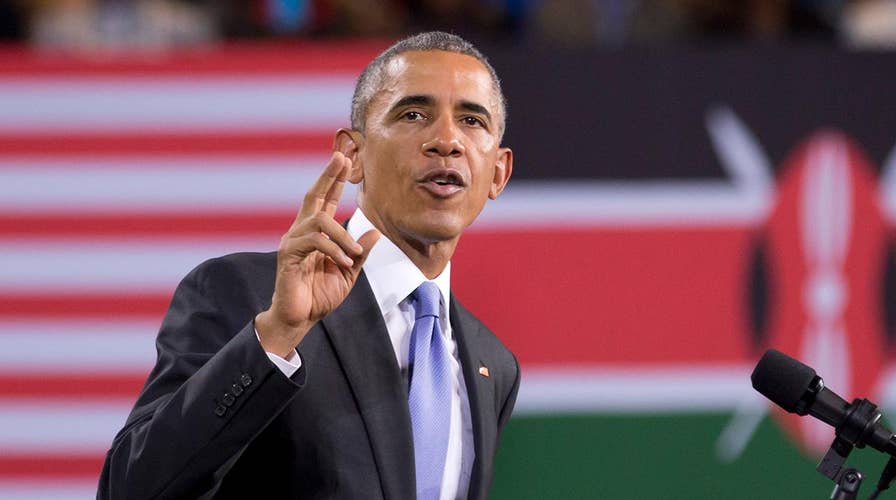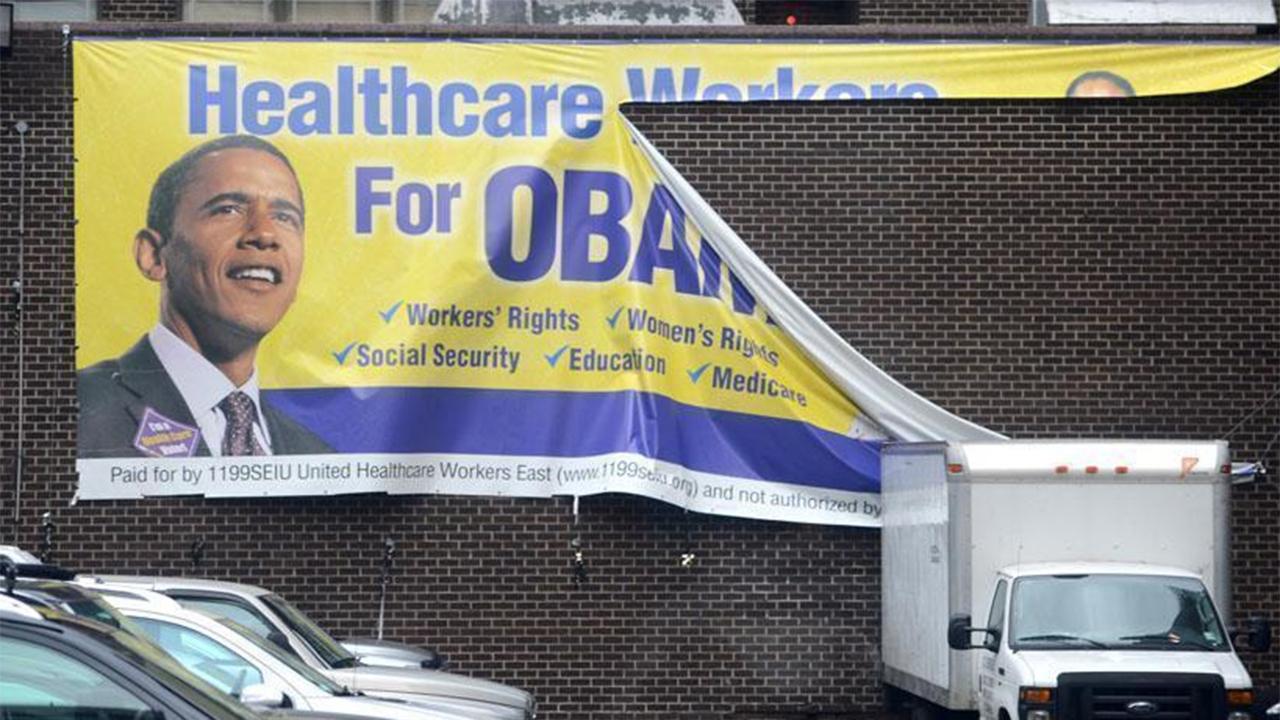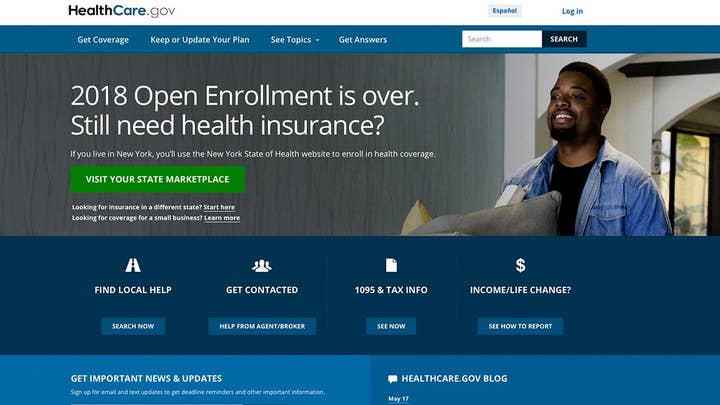Democrats flood airwaves with ads supporting ObamaCare
Congress unable to replace the Affordable Care Act as premiums rise; Peter Doocy reports from Washington.
Last year’s sweeping Republican tax bill killed the federal tax penalty for individuals who refuse to get health insurance as mandated under ObamaCare.
But as that penalty disappears for Americans in January, a growing number of liberal states are moving to enact their own individual mandates requiring residents to purchase health insurance – a last-ditch effort to preserve a critical part of former President Barack Obama’s 2010 health care law.
Since Republicans passed the tax bill in December, New Jersey, Vermont and Washington, D.C., have passed laws enacting an individual mandate, joining Massachusetts, which famously enacted an individual mandate while Mitt Romney was governor in 2006.
Conservatives are railing against the moves.
“Just when you think the move for government control of health care couldn’t get any worse, somehow it manages to,” Christopher Jacobs, a conservative health policy expert, said when the D.C. Council passed its individual mandate requirement in June.
Under Obama’s health care law, the individual mandate required most people to have health insurance meeting specific standards. The law imposed tax penalties for violations.
But under last year’s final tax-reform bill, people no longer face a penalty for noncompliance as of January 2019.
“We eliminated the individual mandate that said that people had to buy government-approved insurance,” Sen. John Barrasso, R-Wyo., told Fox News in a recent interview. “In a sense, it blew a big hole in ObamaCare.”
The idea behind the mandate was to make sure young and healthy customers are buying into the system, to offset the cost of taking on more sick and elderly customers. The looming rollback has triggered warnings of more disruptions to the market.
“The ACA was about standardizing, and now we are going back to more divergence,” Heather Howard of Princeton University’s Woodrow Wilson School of Public and International Affairs told the Washington Post. “It is much more of a patchwork quilt.”
Earlier this year, New Jersey Democratic Gov. Phil Murphy signed a bill enacting an individual mandate. It goes into effect Jan. 1.
"Protecting the viability of the individual mandate is needed to maintain a foundation for the insurance market and to allow the success of the (Affordable Care Act) to continue,” New Jersey state Sen. Joe Vitale, D-Middlesex, a champion of the bill, said.
Vermont passed legislation enacting an individual mandate in May, though the details are still being worked out and it won’t take effect until 2020.
“We are committed to maintaining Vermont’s low uninsured rate,” a spokesman for Republican Gov. Phil Scott said at the time.
OBAMACARE'S FUTURE BECOMES BIG ISSUE IN MIDTERM ELECTIONS
The D.C. Council in June passed its own individual mandate, which would require city residents to have health insurance coverage.
“Establishing an individual mandate here in the city will ensure that people will continue to have insurance,” D.C. Council member Vincent Gray said.
It comes as Democrats are embracing protecting ObamaCare – specifically the requirement to provide coverage to people with pre-existing conditions -- as an issue in the 2018 elections. Democratic leaders are also signaling that they will use it an issue in the upcoming battle over President Trump’s next Supreme Court nominee, though Republicans blame the law for rising premiums.
Fox News’ Peter Doocy, Jason Donner and Brooke Singman contributed to this report.







